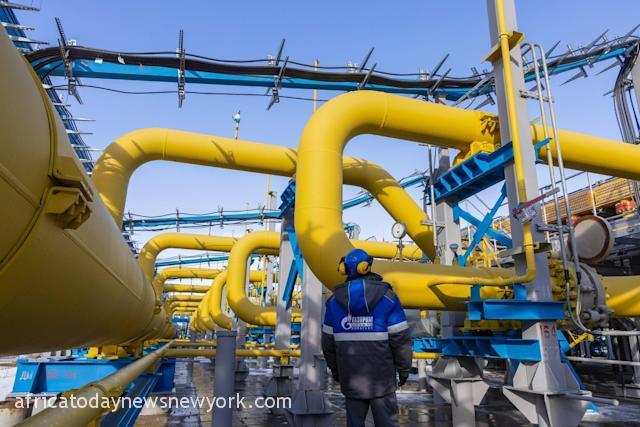The European Commission has announced a 210 billion euro ($220bn) plan which has been designed to help the it bring its dependency on Russian fossil fuels to an end over a period of five years and speed up its transition to green energy.
Africa Today News, New York reports that following the invasion of Ukraine by Russia, Europe’s top gas supplier, has prompted the EU to rethink its energy policies amid sharpened concerns of supply shocks.’We are taking our ambition to yet another level to make sure that we become independent from Russian fossil fuels as quickly as possible,’ EU Commission President Ursula von der Leyen said on Wednesday in Brussels when announcing the package, which has been named REPowerEU.
Presently, Moscow is responsible for the supplies 40 percent of the bloc’s gas and 27 percent of its imported oil, and EU countries are struggling to agree on sanctions against the latter.
Read Also: Hungary Estimates Price Of Cutting Off Russian Oil At €15bn
The bloc’s dash to ditch Russian energy stems from a combination of voluntary and mandatory actions. Both reflect the political discomfort of helping fund Russia’s military campaign in a country that neighbours the EU and wants to join the bloc.
An EU ban on coal from Russia is due to start in August, and the bloc has pledged to try to reduce demand for Russian gas by two-thirds by year’s end. Meanwhile, a proposed EU oil embargo has hit a roadblock from Hungary and other landlocked countries that worry about the cost of switching to alternative sources.
The measures include a mix of EU laws, non-binding schemes, and recommendations to governments in the EU’s 27 member countries, who are largely in charge of their national energy policies.
Taken together, Brussels expects them to require 210 billion euros in extra investments by 2027 and 300 billion euros ($314bn) by 2030 on top of those already needed to meet the bloc’s 2030 climate target. Ultimately, it said the investments would slash Europe’s fossil fuel import bill.
‘RePowerEU will help us to save more energy, to accelerate the phasing out of fossil fuels and, most importantly, to kick-start investments on a new scale,’ von der Leyen said.
Those investments include 86 billion euros ($90bn) for renewable energy and 27 billion ($28bn) for hydrogen infrastructure, 29 billion euros ($30bn) for power grids and 56 billion euros ($59bn) for energy savings and heat pumps.
The Commission said some investments in fossil fuel infrastructure would be required – 10 billion euros ($10bn) for a dozen gas and liquefied natural gas projects, and up to two billion euros ($2.1bn) for oil, targeting land-locked Central and Eastern European countries that lack access to non-Russian supply.

